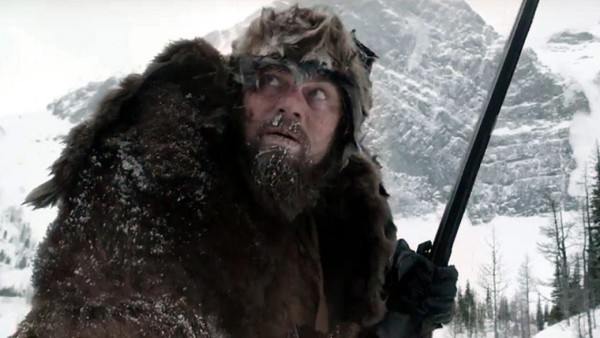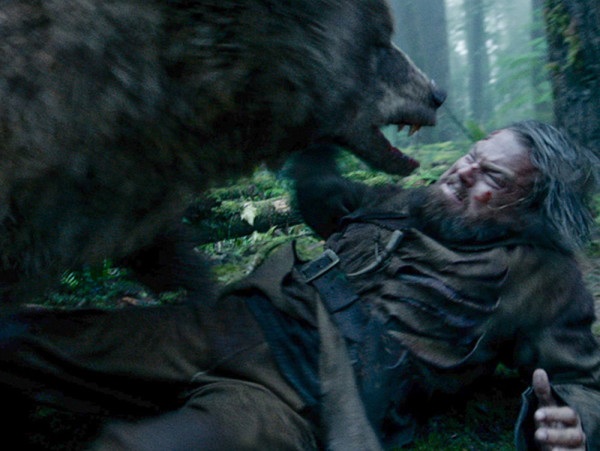
Stepping away from the big city of Birdman, a world of theater, neuroses, jazz drums and hyper-kinetic, lengthy takes, director Alejandro Iñárritu, coming off of four Oscar wins (including Best Picture and Best Director), makes a complete one-eighty with the equally enthralling The Revenant.
Once again using the excellent Oscar-winning cinematography of Emmanuel Lubezki, The Revenant gorgeously and gruesomely evokes the feral frontier of the 1800s-era midwest: a world of trappers, muskets, lyrical long takes and indifference to death. This world is filtered through the eyes of Hugh Glass (DiCaprio), a hired guide for a company of pelters whose camp is beset upon and ransacked by a troop of natives. During their retreat, Glass is attacked by a bear, barely surviving the unflinching, grisly ordeal. The film then focuses on Glass’s incredible recovery and his struggle for survival, becoming a mesmerizing tale of man vs. nature and man vs. man.

I’m still not entirely sold on DiCaprio the Actor, but I will say he does blinding, cringe-inducing pain exceptionally well. Tom Hardy gives further credence to the school of thought that he is better as the villain than the hero, mimicking what he sees as the unforgiving, cruel persona of the wilderness. The seemingly ubiquitous Domhnall Gleeson and Will Poulter round out the rest of the excellent cast.
The Revenant is undeniably one of the most beautiful films I’ve seen this year or last (even more impressive than the 70mm The Hateful Eight), but the beauty is matched by an underlying savagery. Glass’s wounds, inflicted by a protective mother bear, are visceral and terrifying, but no less so than the snowy expanse, the raging river of ice water, or the sheer drop off a cliff face. The Revenant depicts a world where every turn, every step, could mean salvation or demise, and it is a wonder to behold.













